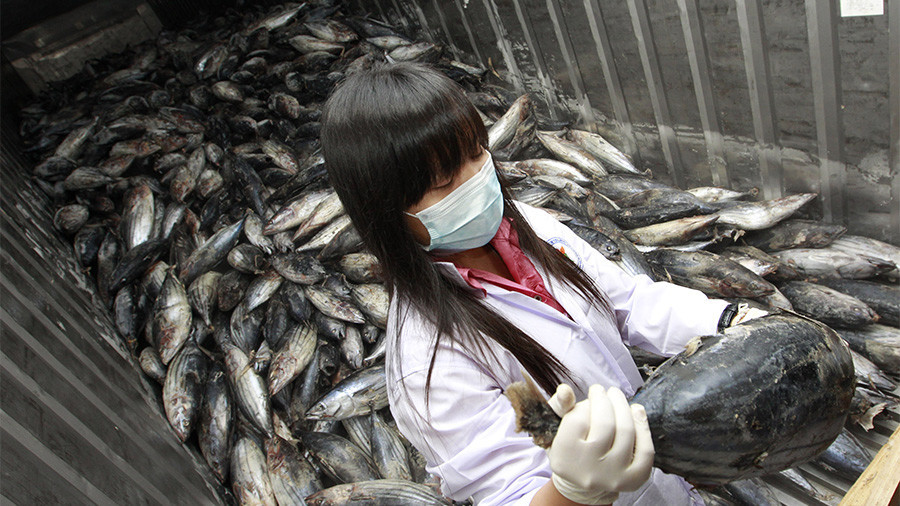Seoul defies WTO ruling, vows to keep ban on Japan's Fukushima seafood

In 2015, Tokyo filed a complaint with the World Trade Organization (WTO) challenging South Korea’s import bans that were introduced on certain fish caught in Japanese waters over fears of radiation following the meltdown of three reactors at the Fukushima power plant in March 2011. In its official complaint, Japan also challenged additional testing and certification requirements placed by Seoul on Japanese fish caught from eight prefectures near Fukushima.
On Thursday, the WTO ruled in Japan’s favor, claiming that while South Korean practices were initially justified, they now violate the WTO’s sanitary and phytosanitary (SPS) agreement. “By maintaining the product-specific and blanket import bans on the 28 fishery products from the 8 prefectures and the 2011 and 2013 additional testing requirements on Japanese products, Korea acted inconsistently with Article 2.3, first sentence of the SPS Agreement and, as a consequence with Article 2.3, second sentence,” the ruling said.
South Korea on Friday refused to bow to the WTO ruling due to public health and safety concerns, announcing that it will challenge the ruling while maintaining the current level of restrictions.
“The Korean government will appeal to safeguard public health and safety,” the Ministry of Trade, Industry and Energy said in a release. “Regardless of the decision, the current import ban will be put in place until the WTO’s dispute settlement procedure ends.”
Japan’s minister of Agriculture, Forestry and Fisheries, Ken Saito, called Seoul’s disobedience regrettable. “Japan will respond accordingly so that our position will be accepted by the Appellate Body as well. We will also call on South Korea to sincerely and promptly correct their measures,” he said at a news conference.
Twenty-four nations across the globe still have some import limitations on Japanese seafood products. Originally, 46 nations adopted protective measures but over time have eased their restriction practices to allow Japanese imports. Despite the ban on Fukushima products, South Korea has imported 708,566 tons of seafood from Japan since March 2011, according to South Korea’s Ministry of Food and Drug Safety. South Korean authorities returned only around 0.03 percent of those imports, asking for additional radiation level tests.



